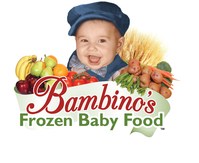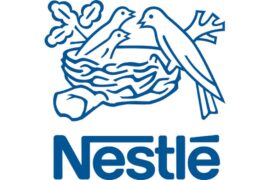Zoi Maroudas, chief executive officer and founder of Bambino’s Frozen Baby Food, has received the Anchorage Chamber of Commerce Gold Pan Entrepreneurial Excellence Award for her company’s “mission-driven purpose of reducing obesity and food allergies through medically-researched, nutrient-dense, organic, natural, balanced products.”
 The Anchorage, Alaska-based company has expanded its frozen seafood, chicken, beef, vegetable and breakfast cereal with fruit offerings by working in partnership with allergists to create what it says is the only commercially available cookie proven to desensitize high-risk infants to peanut allergies. Free of preservatives and sugar, Peanut Mani is made from 100% organic ingredients including ancient winter harvest wheat, eggs and ghee in addition to peanuts. Sweetened by oranges for a natural boost of beta-Carotene essential to immunity, the cookie can be blended into breast milk or formula. It can also be mixed into cereal to make it easy to eat for babies aged four to eight months that are new to solids.
The Anchorage, Alaska-based company has expanded its frozen seafood, chicken, beef, vegetable and breakfast cereal with fruit offerings by working in partnership with allergists to create what it says is the only commercially available cookie proven to desensitize high-risk infants to peanut allergies. Free of preservatives and sugar, Peanut Mani is made from 100% organic ingredients including ancient winter harvest wheat, eggs and ghee in addition to peanuts. Sweetened by oranges for a natural boost of beta-Carotene essential to immunity, the cookie can be blended into breast milk or formula. It can also be mixed into cereal to make it easy to eat for babies aged four to eight months that are new to solids.
“The allergy epidemic can be reversed with meals focused on infants’ nutritional development, and that is what we do at Bambino’s,” said Maroudas. “I created an option that helps babies develop a natural immunity to peanuts. The best thing we can do to improve our nation’s health is to feed our children real, honest foods from the very start. Our meals help babies develop a taste for healthy food and establish good eating habits for a lifetime.”
LEAP Study Points Way
Bambino’s created the Peanut Mani cookie in 2015 under guidance of the LEAP (Learning Early About Peanut) study conducted by the Immune Tolerance Network (ITN). Led by Professor Gideon Lack at Kings College London, the study was structured as the first randomized trial to prevent food allergy in a large cohort of high-risk infants. The results, published in the New England Journal of Medicine, demonstrate that consumption of a peanut-containing snack by babies who are at high-risk for developing peanut allergy prevents the subsequent development of allergy.
Peanut allergy is an aberrant response by the body’s immune system to harmless peanut proteins in the diet. The prevalence of allergic reactions to peanut consumption has doubled over the past 10 years in the United States and other countries that advocate avoidance of peanuts during pregnancy, lactation and infancy. The LEAP study was based on a hypothesis that regular eating of peanut-containing products, when started during infancy, will elicit a protective immune response instead of an allergic immune reaction.






